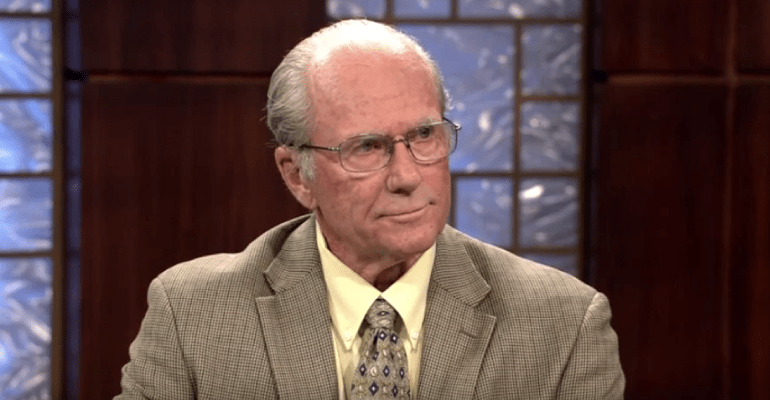
On Tuesday, the Arizona Corporation Commission blocked an effort by Commissioner Bob Burns to make public the campaign contributions from Arizona Public Service in the 2014 election. The commissioners’ vote is just one of many maneuvers they have made to keep the public in the dark about the dark money in that 2014 cycle.
Commission Chair Tom Forese and Commissioner Doug Little, whose campaigns presumably benefited from the millions of dollars spent by Arizona Public Service and its parent company Pinnacle West Capital Corp., along with commissioners Andy Tobin and Boyd Dunn, have systematically worked against Burns.
However, Tuesday’s vote will likely satisfy the order by Maricopa County Superior Court Judge Daniel Kiley that Burns give his fellow commissioners an opportunity to do the right thing and support Burns’ effort to force the power company to turn over their records.
“This was our last attempt,” said Burns in an interview on the James T. Harris radio show. “I’ve been working on this for over 18 months, and I’ve been blocked numerous times by the commissioners. This was sort of the last item to bring before them.”
Burns had also wanted his fellow commissioners “to make sure the administrative law judge, who is in charge of the rate case hearing, allow me to call witnesses and question those witnesses about the rate case. So far they have failed to allow me to do that. The other question was whether or not the issue of commissioners being disqualified because of the large amount of money that was put into the campaign by APS should also be investigated and it needed to be investigated by her,” said Burns referring to the administrative law judge, “because the commissioners cannot investigate themselves.”
In other words, Burns is seeking to have the administrative law judge decide if the APS money the commissioners received through dark money channels disqualifies them from voting on the APS rate case. APS is seeking an increase in the rate they charge consumers.
Instead of cooperating with Burns to ensure that the commissioners are qualified, in what many saw an attempt to look like something is being done, the commissioners decide to have a committee look into things. “The issue was moved to a committee,” said Burns, “I don’t know what they are trying to prove.”
Harris asked Burns about that “death by committee” tactic and the appropriateness of moving the issue to a committee. “The Corporation commission works like a court,” explained Burns, “and if you have an issue you have to file with the commission, and then other sides of the issue can also file and then the commissioners become judges, who resolve the difference between competing parties. So there is really no need for a committee there’s nothing to really take to a committee. Every issue can be run through workshops, which would be similar to a committee meeting in the Legislature, but it’s just information gathering. So that the commissioners can – acting as judges – make their decisions as to which side is right. Then it comes to a final vote. Committees just don’t make any sense to me in the Commission’s structure.”
Harris asked Burns if the judge would see through the “death by committee tactic.” Burns replied, “I don’t think the judge will let them pull the wool over his eyes.”
Harris asked Burns if the commissioners understand how tired the public is with the “stall tactics.” “Well, I don’t think so. Like I said, it has been over 18 months now, and as far as I can tell, they have very, very limited support for what they are doing. I think that they had to try to beat the bushes to try to find someone to say that I ought to be blocked. I mean the ratepayers are the ones at risk here now.”
“The Tucson area is served by Tucson Electric Power, and they have not been involved in this issue. They actually voluntarily stayed out of the election,” said Burns. “The problem is – to my mind – if the largest utility in the state of Arizona gets to the point where they have undue influence on the commission, or even if it gets to the point where they can capture the commission, then they get whatever they really want.”
The term “capture” refers to a relationship in which an individual is unable to make an independent decision. In the case of a commissioner, they would be unable to vote in a way that would be contrary to the interests and demands of their captor corporation.
It is widely believe that the commissioners are acting as APS captives. This perception is based on the appearance that commissioners are shielding APS and the recipients of APS money from public scrutiny, are acting as APS captives.
Burns concluded, “If that happens then there’s no reason why the other utilities would not feel that they are entitled to the same treatment. So it is a slippery slope. It needs to be stopped before it gets worse.”
